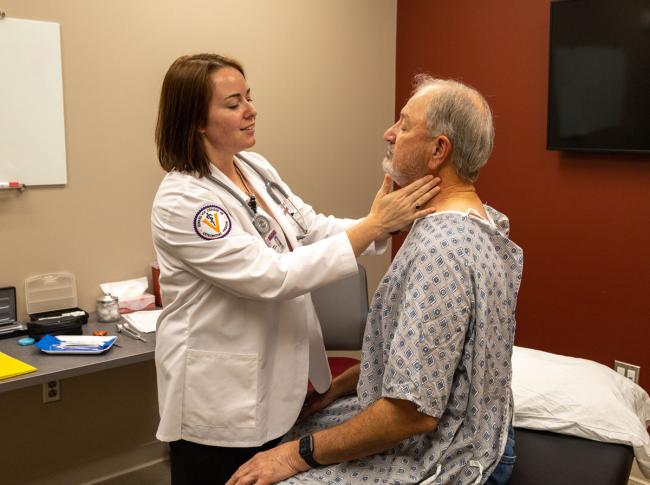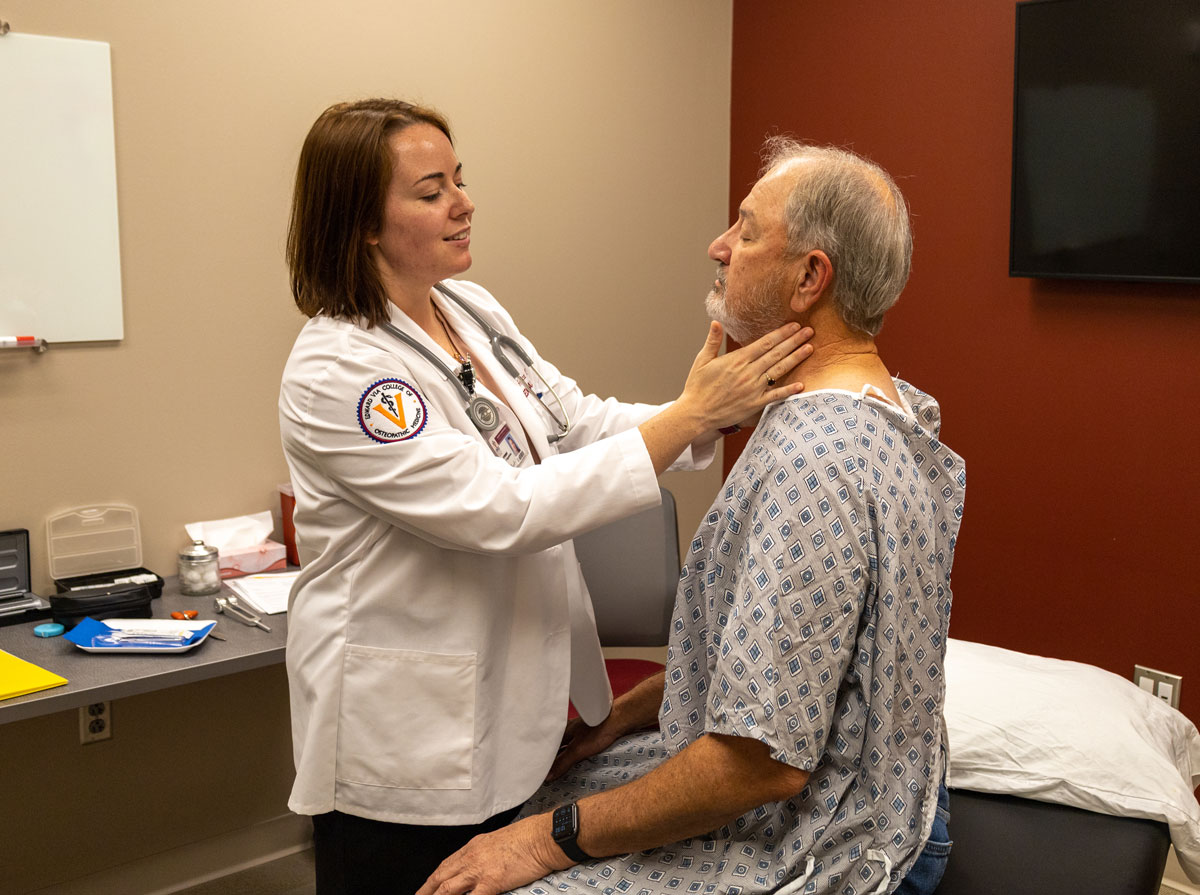
As our population ages, the demand for specialized healthcare for seniors has never been more critical. Geriatric medicine physicians play a pivotal role in addressing the unique healthcare needs of the elderly within the realm of primary care. These specialized practitioners bring a wealth of knowledge and skills that are essential for promoting the well-being of older adults.
One key aspect of geriatric medicine is its focus on the comprehensive care of older individuals. Geriatricians are trained to consider not only the physical health of their patients but also their mental, emotional and social well-being. This holistic approach is crucial in managing the complex medical conditions often associated with aging. At the Edward Via College of Osteopathic Medicine, our emphasis on individualized care means that our physicians have been trained to treat all patients, including geriatric patients, with this kind of comprehensive and holistic philosophy.
In primary care settings, geriatric medicine physicians act as advocates for preventive care tailored to the elderly. They work proactively to identify and address potential health issues before they escalate, emphasizing the importance of screenings, vaccinations and lifestyle modifications to enhance the quality of life for seniors.
Another significant contribution of geriatricians is their expertise in managing multiple chronic conditions. Older adults often contend with a range of health issues simultaneously, and geriatric medicine physicians are adept at developing comprehensive care plans that prioritize the management of these coexisting conditions. This not only improves health outcomes but also helps to streamline healthcare delivery and reduce hospitalizations.
Communication is a cornerstone of effective geriatric care, and geriatricians excel in fostering open dialogues with their elderly patients. They take the time to understand individual preferences, values and goals, allowing for shared decision-making in the management of healthcare. This patient-centered approach is essential in ensuring that the care provided aligns with the unique needs and desires of each older individual.
As the aging population continues to grow, the role of geriatric medicine physicians becomes increasingly vital. These specialized practitioners not only address the medical complexities associated with aging but also contribute to the overall well-being and dignity of older adults. By integrating geriatric expertise into primary care, we can aspire to create healthcare systems that are responsive to the evolving needs of our aging population, fostering healthier and more fulfilling lives for our seniors.
